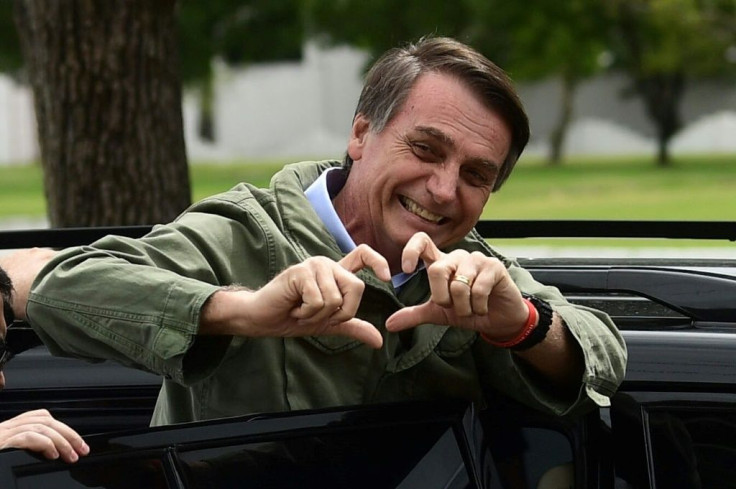Brazil Economy Slows In Bolsonaro's First Year
The Brazilian economy slowed in President Jair Bolsonaro's first year in office, according to official data released Wednesday, disappointing news for markets that bet on the far-right leader to engineer an economic take-off.
And the outlook for Latin America's biggest economy is not much better for this year, given the damaging impact of the new coronavirus, analysts warned.
Brazil's economy grew 1.1 percent in 2019, down from 1.3 percent in each of the previous two years, said the national statistics institute, IBGE.
Growth for the fourth quarter came in at 0.5 percent.
Bolsonaro, who has been dubbed a "Tropical Trump," took office on January 1, 2019, after storming to a shock election win in a Brazil fed up with corruption scandals and coming off a brutal recession.
The former army captain vowed during his presidential campaign to jump-start the economy, winning the support of the business sector despite his open admission that he knows little about economics.
Giving vast power to his University of Chicago-trained economy minister, Paulo Guedes, he began implementing a sweeping agenda of pro-market reforms, austerity cuts and privatizations, including a long-sought pension reform that passed in October.
When Bolsonaro took office, analysts forecast economic growth of around 2.5 percent for the year.
The final figure came in at less than half that.
"It was a cold bath of reality," said economist Victor Beyrute of Guide Investimentos.
"Brazil is going through a transition period, and the problem can't be solved in a year."
Bolsonaro faced criticism for refusing to answer journalists' questions about the economy.
Instead, he made his daily appearance before the press corps with a surprise guest -- comedian Marvio Lucio, decked out in a presidential sash to imitate Bolsonaro.
The president referred all questions to his double, who asked, "What's GDP?"
Critics did not find it funny.

"It takes a dumb president to find the 'humor' in growing poverty and inequality," tweeted Senate opposition leader Randolfe Rodrigues.
Economy guru Guedes sought to downplay the news, saying it was "no surprise" and that Brazil could grow more than two percent this year "if reforms continue."
But the powerful minister's role looks increasingly threatened.
"He's not delivering what he promised.... The Paulo Guedes of today isn't the Paulo Guedes of January 2019," said Andre Cesar, of Brasilia-based consultancy Hold.
"He's facing the perfect storm."
This is shaping up to be another tough year for the world's ninth-biggest economy.
Consulting firm Capital Economics said the latest data "masked a sharp loss of momentum late in the quarter," and warned of "growing headwinds from the effects of the coronavirus."
Brazil, which has confirmed two cases of the new coronavirus, is particularly exposed to the economic impact of the disease because of its close ties with China, its largest trading partner.
The government's current forecast is for 2.4-percent economic growth this year, but markets are predicting less. Capital Economics revised its own forecast down to 1.3 percent.
The central bank said Tuesday it was "closely monitoring the impacts of the coronavirus outbreak," and was prepared to cut its benchmark interest rate again.
The bank has already cut the rate to a series of record lows in a bid to revive economic growth.
It lowered it to 4.25 percent in February, the fifth straight decrease since July.
Brazil's economy had its worst-ever recession in 2015 and 2016, shrinking a whopping 3.5 percent and 3.3 percent, respectively.
"We have had three years of positive results since, but GDP has still not recovered from the drop of 2015 and 2016, and is at the same level as the first quarter of 2013," IBGE official Rebeca Palis said in a statement.
© Copyright AFP 2024. All rights reserved.











